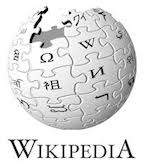Doctor Wikipedia and Digitally Demanding Patients
 The majority of patients and about half of all doctors search the Internet for healthcare and medical information. But—marketing professionals take note—the reference tool of choice of digitally demanding patients is the relative newcomer, “Dr. Wikipedia.”
The majority of patients and about half of all doctors search the Internet for healthcare and medical information. But—marketing professionals take note—the reference tool of choice of digitally demanding patients is the relative newcomer, “Dr. Wikipedia.”
“Wikipedia is the single leading source of medical information for patients and healthcare professionals,” according to a report about online engagement by IMS Institute. “The top 100 English Wikipedia pages for healthcare topics were accessed, on average, 1.9 million times during the past year.”
Empowered and engaged patients…
“The transformation of information gathering and the emergence of the engaged patient has demonstrated the increased importance of social media in the broader healthcare context,” says IMS. “For the healthcare industry, it is becoming increasingly important to be able to react quickly and decisively to events on social media.”
Social media includes networking sites, collaborative services, blogs, content hosting sites and virtual communities. The editor-moderated online encyclopedia Wikipedia is, on one hand, trusted by patients and many physicians, but at the same time, it is vulnerable to misinformation.
The IMS report reviews the impact of social media on the use of medicines, particularly the role of pharmaceutical manufacturers. It’s also useful information for healthcare marketing planners, indicating that online information gathering occurs throughout the patient journey.
It reveals that pharma could be doing more with their social media opportunity. “Among the top 50 pharmaceutical companies worldwide, nearly half actively participate in social media on Facebook, Twitter or YouTube. However, only ten companies utilize all three of these major social networking services for healthcare topics.”
But curiously, “social media engagement lags significantly within the population segment that uses healthcare services the most. “Age is one of a few differentiating factors in the use of social networking sites, where utilization is less dependent on gender, education, income or other forms of social advantage. Younger people tend to conduct online investigations before the start of therapy...[but] patients age 50 or older tend to begin their treatments prior to seeking information online.”
The full version of the report, Engaging Patients Through Social Media, including a detailed description of the methodology, is available at the IMS Institute. And for additional reading about healthcare Internet marketing and social media, see: 23: Number of Useful Internet Marketing Stats in This Post, and Engagement: Making Your Social Media Matrix Sticky.








